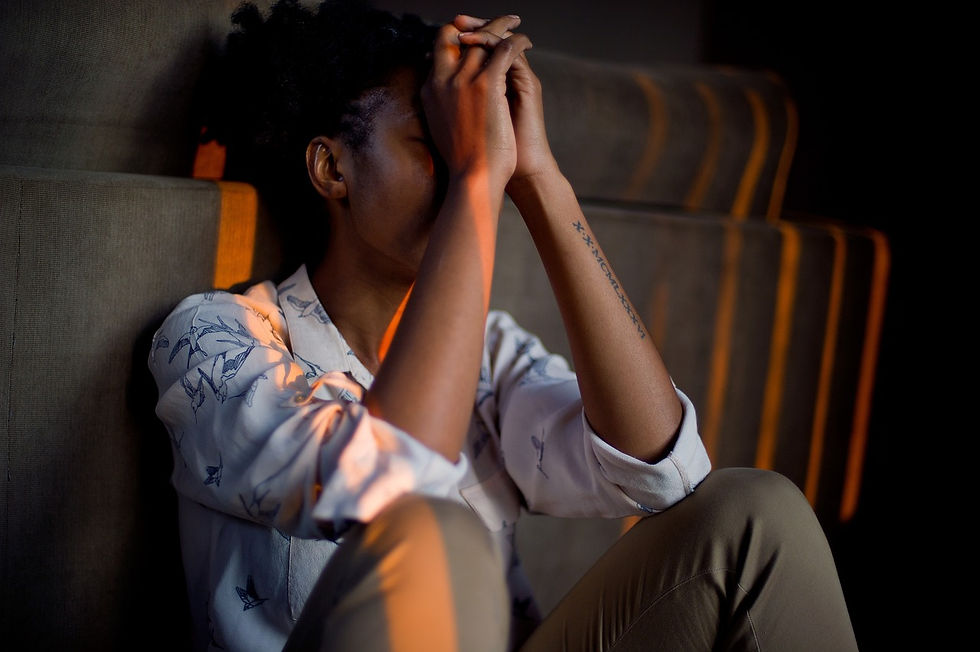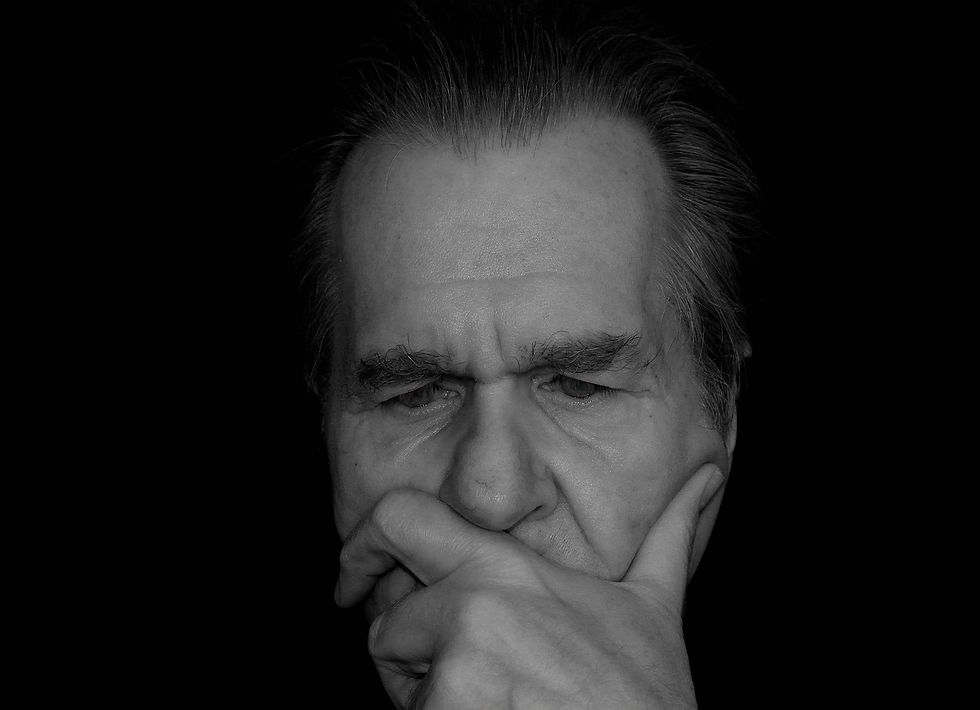The Hidden Crisis in Men's Mental Health: Warning Signs You Can't Ignore
- Blake Davis

- 26 minutes ago
- 6 min read

Men's mental health crisis remains one of our society's most important yet overlooked challenges. The numbers tell a stark story - nearly 1 in 10 men experience depression or anxiety. The reality is that more than half never get treatment . This hidden battle leads to devastating outcomes. Men face a suicide risk that's 4 times higher than women.
The warning signs of mental illness often slip through unnoticed or get brushed aside. The situation becomes more alarming since half of all mental health conditions surface by age 14. Three-quarters of these conditions emerge by age 24 . Life can spiral downward when conditions like depression, bipolar disorder, or OCD go untreated. These conditions can damage personal relationships, reduce job performance, and trigger serious physical health issues including cardiovascular disease . This piece will explore crucial warning signs of mental illness in men - signs we can't afford to miss anymore.
Understanding the Scope of Men's Mental Health
Men's mental health statistics paint a troubling picture. Men die by suicide at rates four times higher than women [1], yet doctors diagnose them with depression only half as often [2]. This stark difference doesn't mean men suffer less—a complex mix of barriers stands in the way of proper diagnosis and treatment.
Men show their mental health struggles differently than women do. Instead of typical symptoms, they often display what experts call "male depressive syndrome." This condition shows up as heightened anger, substance misuse, risky behavior, constant tiredness, and quick temper [3]. Men are also 2.5 times more likely to die from alcohol-related causes [2] and misuse drugs 2-3 times more often than women [4].
Men's reluctance to ask for help stems from several factors. Traditional masculine values push them toward stoicism and self-reliance. Poor understanding of mental health, social stigma, and diagnostic criteria that don't capture men's symptoms make things worse [3]. A survey of 778 men with mental health concerns revealed that 65% wanted treatment while 35% didn't [5]. Most men faced common roadblocks—80% thought everyone feels sad sometimes, 80% didn't know how to choose a therapist, and 73% believed they should handle problems alone [5].
These unique challenges need special attention to tackle this hidden crisis.
Warning Signs of Mental Illness in Men

Mental health problems in men often show up differently than they do in women. Men tend to express their depression through irritability, aggression, and angry outbursts rather than sadness [6]. Their emotional distress becomes visible when they pick fights or verbally abuse loved ones without any clear reason [6].
The body sends its own warning signals through persistent headaches, digestive issues, and unexplained pain [7]. Sleep patterns change drastically - some men sleep excessively while others battle insomnia [8].
Men's behavioral changes become evident through increased substance use, with substance dependence rates twice as high as women's [9]. They might take unnecessary risks or try to control others around them [10].
Their social connections suffer as they pull away from relationships and lose interest in activities they once enjoyed [8]. Job performance takes a hit, leading to more absences and strained relationships with coworkers [11].
The most alarming indicator is suicidal thoughts—men die by suicide at rates four times higher than women [4]. Red flags include death-related conversations, hopeless statements, giving away belongings, or creating specific plans [12].
Note that someone doesn't need to have "serious" mental health problems to ask for help [13]. Even mild symptoms deserve attention before they escalate.
Getting Help and Treatment Options

Professional help plays a significant role for men dealing with mental health challenges. Men are by a lot less likely than women to seek mental health treatment in the last year [14].
Several proven options can help them get better.
Therapy remains the life-blood of treatment, and cognitive behavioral therapy (CBT) works especially well. This well-laid-out approach helps men spot unhealthy thought patterns and build practical coping strategies [15]. Individual psychotherapy creates a safe, confidential space to learn about emotions that masculine norms often discourage [16].
Selective serotonin reuptake inhibitors (SSRIs) help maintain serotonin levels to prevent mood drops when medication becomes necessary [17]. Note that finding the right medication takes time, so sticking with treatment plans as prescribed matters [18].
Support groups provide exceptional benefits through shared understanding. These peer-led communities create safe spaces where men can both receive and give help [19]. Men who attend these groups value their mutual respect and shared experiences [20].
HeadsUpGuys provides self-help articles and therapist finders [2], while Man Therapy runs evidence-based programs to reduce male suicide [5]. The NAMI HelpLine connects people with suitable mental health professionals [3].
Reaching out for help shows strength, not weakness. Mental health conditions typically worsen without treatment and affect every part of life [21].
Conclusion
Men's mental health statistics paint a concerning picture that just needs our immediate action. This piece shows how men experience mental health challenges in unique ways.
They often show anger, abuse substances, and take risks instead of displaying typical depression symptoms. Society's pressure to "man up" creates a dangerous mix where people miss or ignore warning signs.
Early detection of warning signs saves lives. Sleep pattern changes, increased irritability, physical complaints, and social withdrawal point to mental health issues that deserve attention. Men face unique obstacles to getting help, but taking that first step toward treatment is vital.
Without doubt, today's accessible treatment options bring real hope. Cognitive behavioral therapy gives men practical tools to manage difficult thoughts and emotions. Medication helps address chemical imbalances, while men-specific support groups create judgment-free spaces where they feel understood.
The idea that asking for help shows weakness needs to change. Taking that step shows incredible courage and self-awareness. Note that early help prevents issues from getting worse and leads to substantially better outcomes.
We must break the silence around men's mental health together. Learning to spot warning signs, having open talks, and backing those who seek help are vital steps to tackle this hidden crisis. Mental health matters to everyone—whatever their gender.
Key Takeaways
Men's mental health represents a critical yet overlooked crisis, with unique warning signs that often go unrecognized. Understanding these differences and taking action can literally save lives.
Men exhibit depression differently—through anger, irritability, and risk-taking behaviors rather than traditional sadness symptoms
Physical warning signs include unexplained headaches, sleep disruptions, and digestive problems without clear medical causes
Men are 4 times more likely to die by suicide but half as likely to be diagnosed with depression compared to women
Substance abuse, social withdrawal, and declining work performance are key behavioral indicators requiring immediate attention
Seeking professional help through therapy, medication, or support groups demonstrates strength, not weakness
The stigma surrounding men's mental health creates dangerous barriers to treatment. By recognizing these warning signs early and encouraging open conversations, we can address this hidden crisis before it becomes life-threatening. Remember: mental health conditions typically worsen without treatment, affecting every aspect of life.
FAQs
Q1. What are some common warning signs of mental health issues in men?
Common warning signs include unexplained physical symptoms like headaches or digestive problems, increased irritability or anger, substance abuse, social withdrawal, and declining work performance. Men may also exhibit risk-taking behaviors or express feelings of hopelessness.
Q2. How do mental health symptoms differ between men and women?
Men often exhibit symptoms differently than women. Instead of sadness, men may show increased anger, irritability, or engage in risky behaviors. They're also more likely to use substances as a coping mechanism and may be less likely to openly discuss their feelings.
Q3. Why are men less likely to seek help for mental health issues?
Several factors contribute, including societal expectations of masculinity, stigma surrounding mental health, lack of awareness about symptoms, and the belief that they should solve problems on their own. Many men also struggle with identifying what to look for in a therapist.
Q4. What treatment options are available for men experiencing mental health challenges?
Treatment options include cognitive behavioral therapy, individual psychotherapy, medication such as SSRIs, and support groups. There are also resources specifically designed for men, like HeadsUpGuys and Man Therapy, which offer self-help tools and connections to professionals.
Q5. How serious is the men's mental health crisis?
The crisis is significant. Men are four times more likely to die by suicide than women, yet they're diagnosed with depression at only half the rate. Additionally, men are 2.5 times more likely to die from alcohol-related causes and 2-3 times more likely to misuse drugs compared to women.
References
[3] - https://helplinefaqs.nami.org/article/449-are-there-mental-health-resources-and-support-specifically-for-men

![Why Finding a Therapist in Massachusetts Doesn't Have to Be Hard [2025 Guide]](https://static.wixstatic.com/media/706a3b_b566798d44904a8d9c7c9ef103e58ad7~mv2.jpg/v1/fill/w_980,h_653,al_c,q_85,usm_0.66_1.00_0.01,enc_avif,quality_auto/706a3b_b566798d44904a8d9c7c9ef103e58ad7~mv2.jpg)


Comments